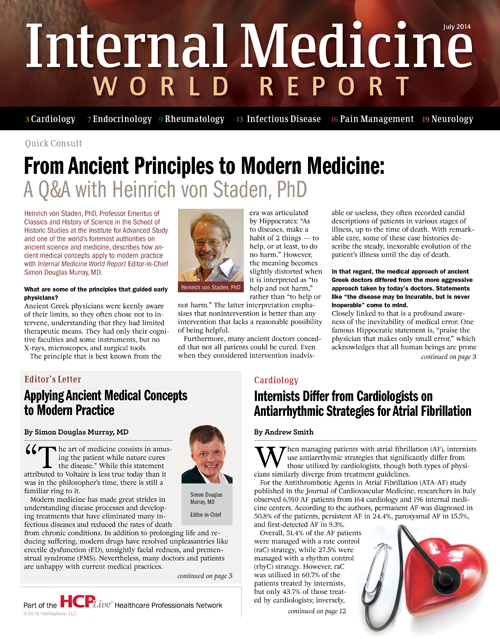Risk of New-onset Atrial Fibrillation Varies Across Antihypertensive Drug Classes
New research on the link between antihypertensive medications and atrial fibrillation suggests diuretics may trigger new cases of the condition, while angiotensin-converting enzymes may protect against it.

New research on the link between antihypertensive medications and atrial fibrillation (AF) suggests diuretics may trigger new cases of the condition, while angiotensin-converting enzymes (ACEs) may protect against it.
However, no significant correlation was found among other types of hypertensive medications — including angiotensin receptor blockers (ARBs), alpha-blockers, beta-blockers, and calcium channel blockers (CCBs) — and the risk of developing AF.
For the study, which recently appeared in Hypertension Research, researchers from several Taiwanese hospitals used insurance records to track 47,682 patients from January 2005 to December 2010. All of the patients had been taking a single antihypertensive medication at the study’s start date, but none had been diagnosed with AF. However, 819 (1.72%) developed AF over the 6-year study period.
In their initial analysis, the investigators found significant differences in the percentages of AF patients and non-AF patients who received alpha-blockers (7.6% vs. 5.2%), ACE inhibitors (13.3% vs. 18.1%), beta-blockers (20.1% vs. 23.9%), and diuretics (14.0% vs. 8.8%). The researchers noted several other important differences among those who did and did not develop AF. For instance, the mean age of those who developed AF was 69.7 years old, while the mean age of those who did not was 61.5 years old. Additionally, men accounted for 50.4% of those who developed AF, but only 46.3% of those who did not.
Adjustments for patient age and sex eliminated the significance of the risk increase associated with alpha-blockers and the apparent risk reduction associated with beta-blockers, which actually leaned toward increased risk in the investigators’ final analysis.
The apparent effects of diuretics and ACEs survived the adjustment, as diuretic use showed significant positive correlation with new-onset AF, while ACE use showed significant negative correlation.
In response to those findings, the authors hypothesized “the occurrence of hypokalemia might explain the association between diuretic therapy and new cases of AF.”
“Diuretic therapy may induce hypokalemia and induce atrial beats by re-entry or automatic mechanisms,” they wrote. “Other mechanisms that might be involved in this proarrhythmic effect are ventricular electrical instability and serious ventricular arrhythmias in ischemic heart disease (IHD).”
While the researchers claimed “this is the first study showing that diuretics are associated with a high risk of (new-onset) AF in hypertensive outpatients,” they acknowledged their findings conflicted, to some degree, with those of previous studies.
For example, some studies have found the use of both beta-blockers and ARBs correlates with reduced risk of AF, while others have suggested the use of CCBs correlates with increased risk.
The authors of the present study speculated that differences among patient groups and tracking methods might explain the apparent contradictions, though they also noted 2 major limitations of their project. The first was the study’s retrospective nature and the fact that it excluded hypertensive patients who received no medication, while the second was the limited data available through the insurance forms on which the research team relied.
